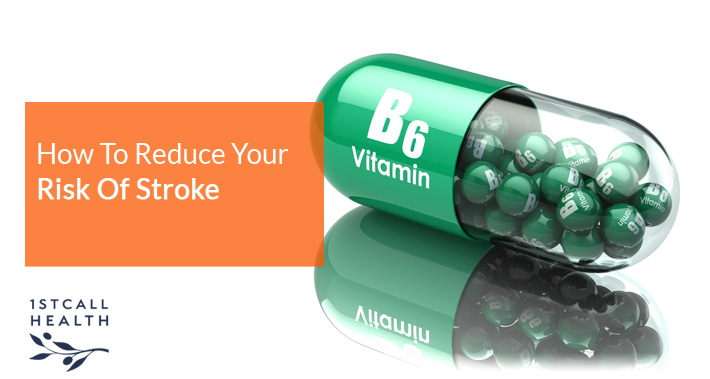
If you’ve ever had a stroke or been around someone while they’re having one, you know how scary it can be.
The onset of slurred speech, loss of coordination, and vision issues may be frightening while they’re happening, but they also signal a long recovery to follow.
Certainly, the best thing to do when it comes to strokes is to reduce your risk of having one in the first place.
We’re 1stCallHealth, a nurse practitioner medical clinic in Washington DC, and we want to offer you some tips to help you lower the chance of having a stroke in the first place.
Keep reading to find out more about strokes, and the steps you can take to make the chances of having one less likely.
What’s Happening When You Have A Stroke?
A stroke occurs when there is an interruption of blood flow to the brain.
This could be due to either a ruptured blood vessel, resulting in a bleed, or because of a blockage in the vessel.
As a result, the brain doesn’t get enough oxygen.
Your brain needs oxygen to survive and without it your brain tissue will begin to die off within minutes.
What Causes Different Types Of Strokes?
As noted above, there are a few different reasons someone might have a stroke.
The cause of stroke depends on the type of stroke.
Factors which could put you at a higher risk of having a stroke include:
- Sedentary lifestyle
- Smoking
- Genetic factors
- Advanced age
- Ethnicity
- Unhealthy diet, especially those high in salt, fats, processed sugars, and cholesterol
- Heavy alcohol use
Now, let’s take a look at the different types of strokes.
Ischemic Stroke
An ischemic stroke occurs when there is a blockage which causes reduced blood flow to the brain.
This can be due to blood clots, or pieces of plaque buildup breaking off from the inside of a blood vessel.
This type of stroke accounts for 87% of all strokes.
Hemorrhagic Stroke
If there is a rupture in an artery which results in the loss of blood flow to the brain, this is a hemorrhagic stroke.
Transient Ischemic Attack
If there is a temporary blockage of blood flow to the brain, this is called a transient ischemic attack (TIA).
This is also known as a “mini stroke,” and is a type of ischemic stroke.
On the outset, this looks similar to a regular stroke.
However, symptoms are usually short lived and disappear when the blockage goes away.
Although a TIA is not as severe as a full blown stroke, it can often be a warning sign.
If you have a TIA, you’re at a much greater risk of having another stroke in the days and months following a TIA, including the more serious types.
As a result, a TIA should be treated with the same seriousness.
How To Reduce Your Risk Of Stroke
If you’re worried about having a stroke, there are a number of things you can do to help reduce your risk.
Let’s look now at the various lifestyle factors which will make you less likely to have a stroke.
1. Avoid Smoking
If you smoke, did you know you have twice the risk of having a stroke (or heart attack, for that matter) than someone who doesn’t smoke?
People who smoke are more likely to have plaque accumulation in their arteries, which can lead to a blot clot causing a stroke.
2. If You Drink Alcohol, Do It In Moderation
Too much alcohol can lead to an increase in blood pressure.
This leads to an increased risk of having a stroke.
Excess alcohol can also result in weight gain, which is another risk factor for stroke.
Luckily, options for non alcoholic drinks and “mocktails” are getting better and better every day.
Consider replacing some of your usual drinks with these instead.
3. Get Enough Exercise
Physical activity is great for a number of reasons.
It can help you manage blood pressure and cholesterol levels, and also helps you to maintain a healthy weight.
It’s recommended that adults get at least 150 minutes of moderate intensity exercise each week.
Examples of this could be:
- Brisk walking
- Playing tennis
- Going for a bike ride
- Hiking
- Water aerobics

4. Maintain A Healthy Weight
Being overweight or obese may leave you at a higher risk for having a stroke.
Taking measures such as eating a healthy diet and getting regular physical activity will not only help you manage your weight but also contribute to better overall health.
5. Supplement With B Vitamins
According to a 2018 article in the journal Stroke and Vascular Neurology using vitamin B supplements can reduce the risk of having a stroke by approximately ten percent.
Specifically, vitamins B6, B9 (folic acid) and B12 are beneficial in this regard.
6. Get Enough Electrolytes
Electrolytes include sodium, calcium, potassium, chloride, phosphate, and magnesium.
They are minerals which regulate muscle contractions and keep you hydrated.
In addition, they also maintain your pH levels.
A 2014 study showed a link between stable electrolyte intake and a lower risk of having a stroke.
7. Keep Any Medical Conditions Under Control
There are a number of other medical conditions which are associated with a higher risk of stroke.
Some of these include:
- Diabetes
- High cholesterol
- Disorders which affect blood clotting
- Hypertension
- Enlarged heart
- Heart disease
- Sickle cell disease
- Heart valve defects
- Being overweight or obese
Taking measures to keep these, or any other medical conditions, under control can help reduce your risk of having a stroke.
Book Your Appointment With 1stCallHealth Today
Are you worried that you’re at increased risk of having a stroke?
Maybe you’ve had one in the past and are wanting to limit your risk of having another.
At 1stCallHealth we can help you manage and reduce your risk factors or help with stroke recovery, and at an affordable, accessible price.
Book your appointment with 1stCallHealth today.
1stCallHEALTH
1331 H St NW Ste 200,
Washington, DC 20005
(202) 590-0009
– https://goo.gl/maps/MVhjkz2jqynWpsgo6
1stCallHEALTH provides affordable access to primary care services. We believe that everyone deserves affordable, high quality primary care. Our vision is to challenge the status quo, focus on the individual, and empower personal control to change the way we think about healthcare.




